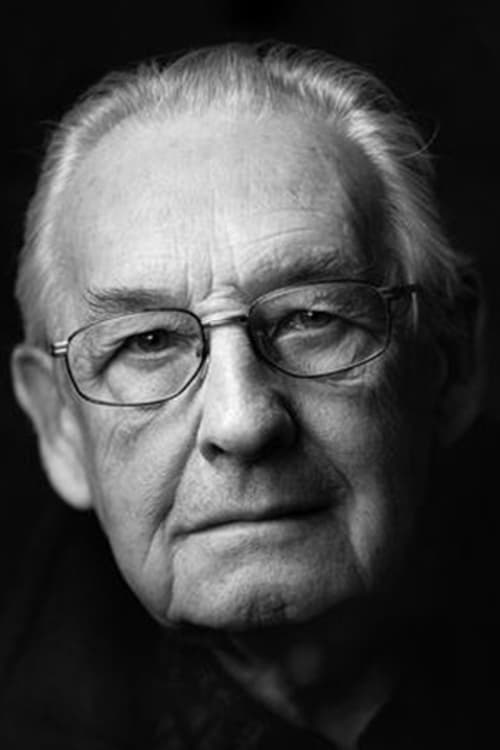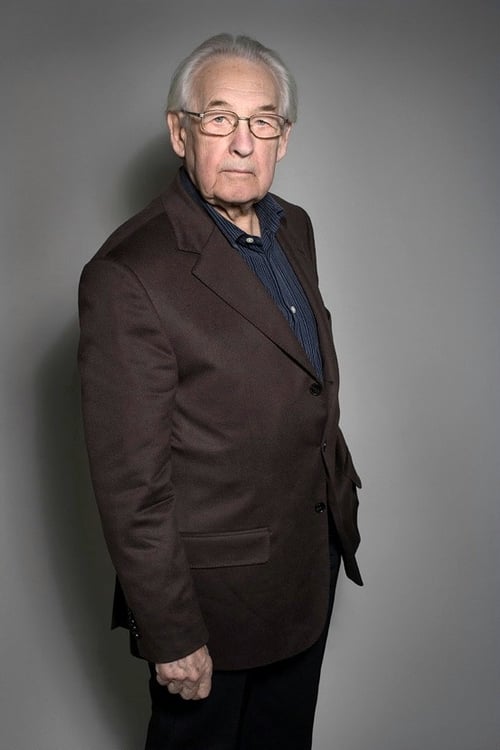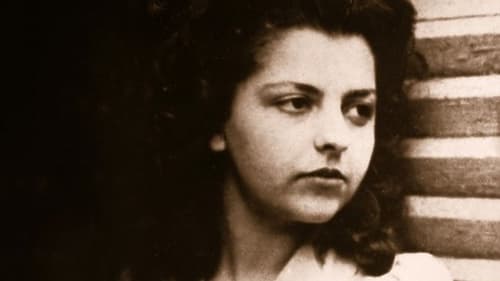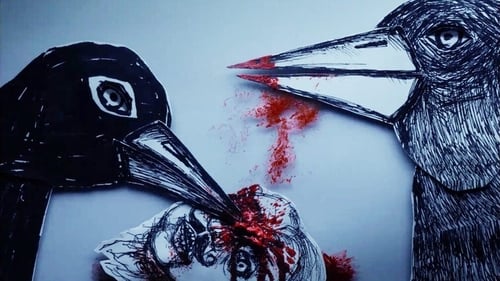
Old Man on the Train (voice)
El personaje principal, que perdió a los que más le importaban, trata de escapar de la desesperación escondiéndose en un lugar seguro lleno de recuerdos. Con los años, una gran ciudad se forma en su imaginación. Héroes de la literatura y dibujos animados de su infancia llegan a poblarla sin ser invitados. Cuando el protagonista descubre que todos se han vuelto viejos y que la eterna juventud no existe, decide volver a la realidad.

Co-Director
Shortly before his death, Marek Edelman (1919-2009), former commander of the Warsaw Ghetto Uprising (1943) against the Nazi occupation, wonders about several basic themes of human existence in relation to the Shoah: how was it possible to enjoy love, tenderness, passion and lust while the whole world was crumbling and burning around.

Self
A documentary celebrating the work of Walerian Borowczyk, a director of unparalleled sensitivity, revered in the 1970s, who was later labeled as a maker of erotic movies.

Director

Self
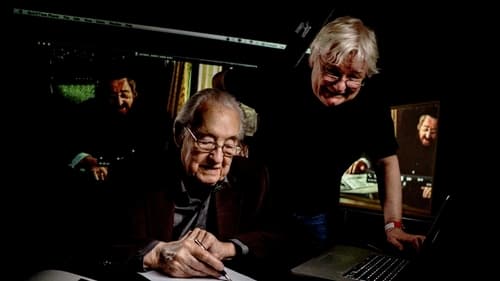
Self - Filmmaker
A few months before his death, Polish filmmaker Andrzej Wajda (1926-2016) revisited his work in an assembly room of the Andrzej Wajda Master School of Film Directing, established in Warsaw in 2002.
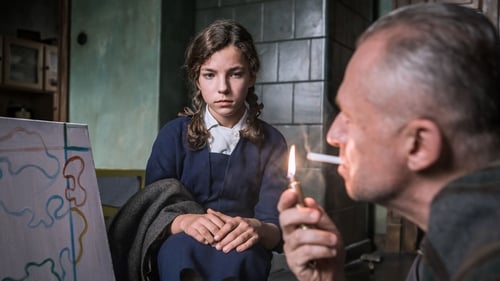
Writer
La película es un recorrido por la vida del pintor vanguardista polaco Wladyslaw Strzeminski y sobre su proceso creativo, que le llevó a convertirse en una de las figuras artísticas más importantes de Polonia durante la primera mitad del siglo XX. Strzeminski se niega a comprometer su arte a las doctrinas del realismo social cuando en 1948, Stalin invade Polonia. Así, es perseguido, expulsado de la universidad y borrado de los muros de los museos. Con ayuda de sus alumnos, comienza a luchar contra los invasores convirtiéndose en un símbolo contra la tiranía intelectual.

Director
La película es un recorrido por la vida del pintor vanguardista polaco Wladyslaw Strzeminski y sobre su proceso creativo, que le llevó a convertirse en una de las figuras artísticas más importantes de Polonia durante la primera mitad del siglo XX. Strzeminski se niega a comprometer su arte a las doctrinas del realismo social cuando en 1948, Stalin invade Polonia. Así, es perseguido, expulsado de la universidad y borrado de los muros de los museos. Con ayuda de sus alumnos, comienza a luchar contra los invasores convirtiéndose en un símbolo contra la tiranía intelectual.

Screenplay
Andrzej Wajda mentions Andrzej Wróblewski (1927-1957) as a painter and friend. It tells about a man facing the challenges of the epoch and dramatically searching for his space. Wróblewski, seen through the eyes of Wajda, is a genius who had to wait a long time for recognition, but also did not fully recognize his own greatness. Their paths crossed right after the war, when they both studied at the Academy of Fine Arts in Krakow. Born in Vilnius, the young artist studied at the faculty of painting and sculpture, he also studied art history at the Jagiellonian University. The film was produced on the occasion of the exhibition of the same title organized at the Manggha Museum of Japanese Art and Technology in Krakow in 2015.

Director
Andrzej Wajda mentions Andrzej Wróblewski (1927-1957) as a painter and friend. It tells about a man facing the challenges of the epoch and dramatically searching for his space. Wróblewski, seen through the eyes of Wajda, is a genius who had to wait a long time for recognition, but also did not fully recognize his own greatness. Their paths crossed right after the war, when they both studied at the Academy of Fine Arts in Krakow. Born in Vilnius, the young artist studied at the faculty of painting and sculpture, he also studied art history at the Jagiellonian University. The film was produced on the occasion of the exhibition of the same title organized at the Manggha Museum of Japanese Art and Technology in Krakow in 2015.

An abandoned tumbledown theater in the outback of Paraíba state is the initial setting of a film about cinema, which explores the testimonials of the novelist and playwright Ariano Suassuna and other filmmakers such as Ruy Guerra, Julio Bressane, Ken Loach, Andrzej Wajda, Karim Ainouz, José Padilha, Hector Babenco, Vilmos Zsigmond, Béla Tarr, Gus Van Sant and Jia Zhangke. They all respond to two basic questions: why do they make movies and why do they serve the seventh art. The filmmakers share their thoughts about time, narrative, rhythm, light, movement, the meaning of tragedy, the audience‘s desires and the boundaries with other forms of art.

Self
Documental sobre la vida y obra del compositor polaco Krzysztof Penderecki

Self (archive footage)
Polanski, en la película que dirige Laurent Bouzereau, habla de él y de su obra desde su casa de Gstaad (Suiza) en una entrevista que duró unas quince horas con su amigo, el productor británico Andrew Braunsberg. El documental se detiene con minuciosidad en la infancia del director franco-polaco, que Polanski cuenta desde el salón de su chalet suizo durante la detención domiciliaria dictada contra él en 2009 y que precedió a la decisión de la Justicia helvética de no extraditarle a Estados Unidos. El episodio de sus relaciones sexuales con Samantha Gaimer en 1977, que entonces tenía 13 años y por el que se reclamaba su envío a EE.UU., se repasa en el filme, con las declaraciones de la mujer en las que perdonó a Polanski y dijo comprender el asedio de los "paparazzi", que ella también dijo haber sufrido. La cinta aborda con detalle los primeros años de la vida del realizador e ilustra con pasajes de sus filmes el vínculo entre detalles personales y escenas de algunas de sus películas.
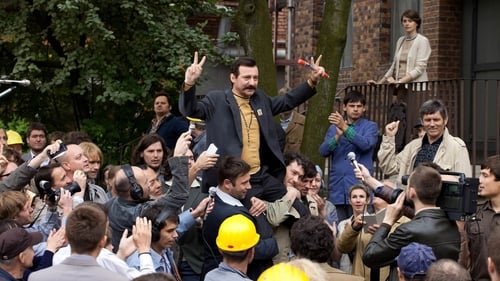
Director
El prestigioso director ganador del Oscar Andrzej Wajda ("Katyn") dirige un impecable biopic sobre una de las personalidades más controvertidas y carismáticas del siglo XX: Lech Walesa, líder del Sindicato de la Solidaridad, premio Nobel de la Paz en 1983 y primer presidente de Polonia tras el comunismo. Un film indispensable y de gran valor histórico. La vida del ganador del Premio Nobel de la Paz y fundador del movimiento de Solidaridad de Polonia, Lech Walesa, a medida que los eventos de 1970 llevan a una revolución. Su increíble metamorfosis desde un simple trabajador, centrado en sus tareas del día a día, a un líder carismático. Este controvertido personaje, no exento de defectos, ayudó a millones de personas a liberar sus sueños de libertad, consiguiendo transformaciones más allá de la imaginación de cualquiera de la época.

Screenplay
At the Old Theater in Krakow Wajda staged a play in 1971, based on Dostoevsky's novel "Demons". In this documentary Wajda tells the story of the unique play that went on uninterrupted for 10 years despite opposition from the authorities.

Director
At the Old Theater in Krakow Wajda staged a play in 1971, based on Dostoevsky's novel "Demons". In this documentary Wajda tells the story of the unique play that went on uninterrupted for 10 years despite opposition from the authorities.

Writer

Director
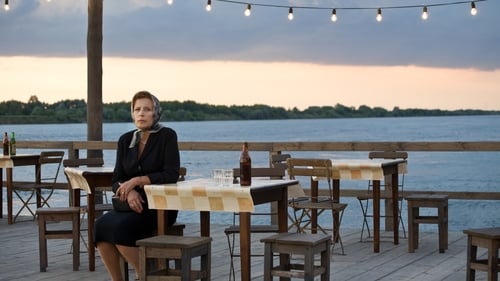
Himself
Marta (Krystyna Janda), una mujer de mediana edad casada con el médico local, busca la felicidad en los brazos de un hombre mucho más joven, Bogus (Pawel Szajda). Marta y Bogus disfrutan de una relación tan inocente y fresca como el olor de los juncos del río en el que nadan en su primera cita. Pero cuando todo parece ir bien, Bogus se ahoga intentando coger un junco para Marta.

Screenplay
Marta (Krystyna Janda), una mujer de mediana edad casada con el médico local, busca la felicidad en los brazos de un hombre mucho más joven, Bogus (Pawel Szajda). Marta y Bogus disfrutan de una relación tan inocente y fresca como el olor de los juncos del río en el que nadan en su primera cita. Pero cuando todo parece ir bien, Bogus se ahoga intentando coger un junco para Marta.

Director
Marta (Krystyna Janda), una mujer de mediana edad casada con el médico local, busca la felicidad en los brazos de un hombre mucho más joven, Bogus (Pawel Szajda). Marta y Bogus disfrutan de una relación tan inocente y fresca como el olor de los juncos del río en el que nadan en su primera cita. Pero cuando todo parece ir bien, Bogus se ahoga intentando coger un junco para Marta.
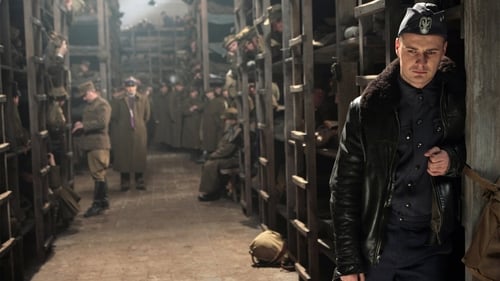
Screenplay
El 1 de septiembre de 1939, la Alemania nazi invade Polonia, dando principio a la Segunda Guerra Mundial. El 17 de septiembre, el Ejército Rojo soviético cruza la frontera. El ejército polaco, incapaz de luchar en dos frentes, es derrotado. Miles de hombres polacos, tanto militares como funcionarios gubernamentales, son capturados por los invasores. Su destino solo será conocido varios años después.

Director
El 1 de septiembre de 1939, la Alemania nazi invade Polonia, dando principio a la Segunda Guerra Mundial. El 17 de septiembre, el Ejército Rojo soviético cruza la frontera. El ejército polaco, incapaz de luchar en dos frentes, es derrotado. Miles de hombres polacos, tanto militares como funcionarios gubernamentales, son capturados por los invasores. Su destino solo será conocido varios años después.

Self
In February, 1945, Primo Levi (1919-1987) and other Auschwitz survivors set off for home. The journey took more then eight months. Sixty years later, a film crew retraces Levi's steps. Levi's words, mainly from "The Truce" (1963), tell us what he experienced. In turn, we see Poland's hollow post-war factories, nationalism in the Ukraine, Soviet-style Communism in Belarus, the abandoned town of Prypiat (Chernobyl), poverty and emigration from Moldavia, Italian factories in Romania, and on across Hungary and Slovakia to Munich where Levi's rage found no listeners. Then home to Turin. An aged Mario Rigoni Stern remembers his friend. What has changed? Some issues of the war remain unsettled.

Writer

Director

Self

Interviewer
Interview with political scientist and social activist Jan Nowak-Jezioranski by film director Andrzej Wajda.

Director
Interview with political scientist and social activist Jan Nowak-Jezioranski by film director Andrzej Wajda.

himself
Film about the work of Ukrainian film director Kira Muratova.
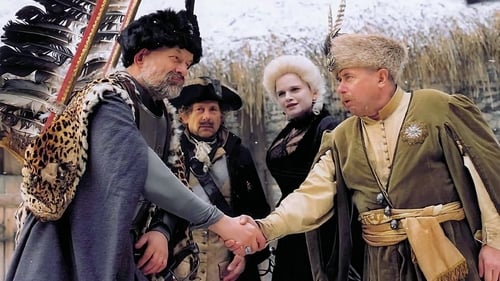
Screenplay
A winter day at a Polish castle, half owned by a fatalistic notary and half by a volcanic old soldier's niece. The old soldier, Cupbearer, and the notary are sworn enemies, which may doom the love between the niece, Klara, and the notary's son, Waclaw. On this day, the tongue-tied Cupbearer asks a braggart courtier, Papkin, to sue on his behalf for the hand of the widow Hanna. Papkin succeeds and

Director
A winter day at a Polish castle, half owned by a fatalistic notary and half by a volcanic old soldier's niece. The old soldier, Cupbearer, and the notary are sworn enemies, which may doom the love between the niece, Klara, and the notary's son, Waclaw. On this day, the tongue-tied Cupbearer asks a braggart courtier, Papkin, to sue on his behalf for the hand of the widow Hanna. Papkin succeeds and

Director
Andrzej Wajda documentary about Polish film.

Director
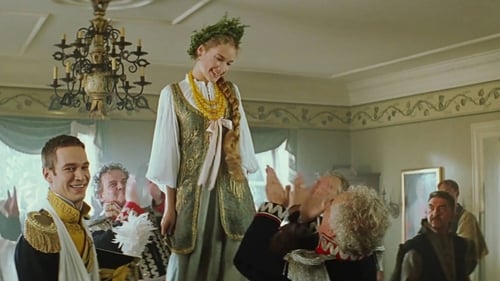
Screenplay
Lituania, 1812. Polonia está tachada del mapa de Europa. Dos grandes familias se enfrentan entre sí: los Soplica, aliados de los rusos, y los Horeszko, defensores de la independencia polaca. Tras veinte años de conflicto, Jacek Soplica ha matado al último señor de la casa de los Horeszko, que le había negado la mano de su hija. Para reparar su terrible falta, Jacek adopta la identidad de un monje bernardino y se encarga de la educación de Sophie, descendiente de los Horeszko. Su objetivo es desposarla con su hijo Tadeusz, quien acaba de regresar tras finalizar sus estudios. Pero en junio de 1812, Napoleón Bonaparte, en su avance hacia Moscú, franquea el Niemen. Entonces Tadeusz decide unirse al ejército, frustrando así los planes matrimoniales que su padre tenía para él.

Director
Lituania, 1812. Polonia está tachada del mapa de Europa. Dos grandes familias se enfrentan entre sí: los Soplica, aliados de los rusos, y los Horeszko, defensores de la independencia polaca. Tras veinte años de conflicto, Jacek Soplica ha matado al último señor de la casa de los Horeszko, que le había negado la mano de su hija. Para reparar su terrible falta, Jacek adopta la identidad de un monje bernardino y se encarga de la educación de Sophie, descendiente de los Horeszko. Su objetivo es desposarla con su hijo Tadeusz, quien acaba de regresar tras finalizar sus estudios. Pero en junio de 1812, Napoleón Bonaparte, en su avance hacia Moscú, franquea el Niemen. Entonces Tadeusz decide unirse al ejército, frustrando así los planes matrimoniales que su padre tenía para él.
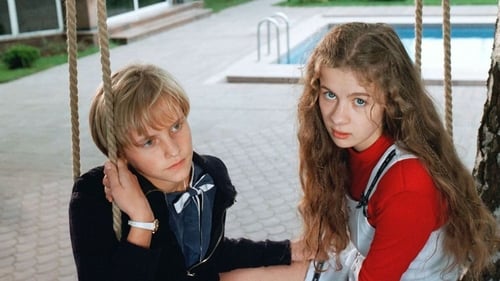
Director
A devout Catholic peasant girl is corrupted by two new friends when her family moves to the city. An allegory of traditional Polish values under threat from materialism and decadence in the post-Communist era.
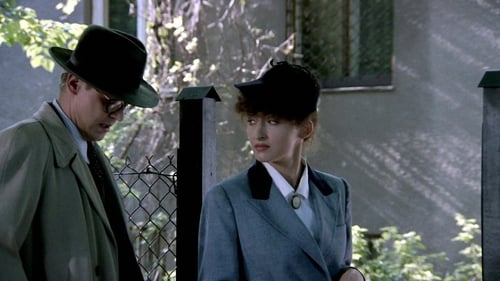
Writer
During the Nazi era, a Jewish woman on the run takes a trolley which passes near the Warsaw ghetto, where the uprising battle is taking place, and some passengers are struck by stray bullets. They take temporary refuge in an empty building, and there she has a chance meeting with her ex-fiancé. He offers to put her up--that is, hide her--for a few days. He's now married, a professional who lives in an idyllic suburb reached by a trolley that runs through the woods. His wife seems more committed to putting up the fugitive than he is. The story involves the neighbors, the building owner who avoids involvement and seeks solace in classic poetry, and the super and his suspicious wife.

Director
During the Nazi era, a Jewish woman on the run takes a trolley which passes near the Warsaw ghetto, where the uprising battle is taking place, and some passengers are struck by stray bullets. They take temporary refuge in an empty building, and there she has a chance meeting with her ex-fiancé. He offers to put her up--that is, hide her--for a few days. He's now married, a professional who lives in an idyllic suburb reached by a trolley that runs through the woods. His wife seems more committed to putting up the fugitive than he is. The story involves the neighbors, the building owner who avoids involvement and seeks solace in classic poetry, and the super and his suspicious wife.

Writer
Andrzej Wajda's Japanese-language film based on the last chapter of Dostoevsky's Idiot, in which Prince Myshkin and Rogozhin return to the past in a conversation over the dead body of Nastassya Filippovna. Bando Tamasaburo, regarded as one of the most outstanding female impersonators in Japanese theater, plays the dual role of Myshkin and Nastassya.

Director
Andrzej Wajda's Japanese-language film based on the last chapter of Dostoevsky's Idiot, in which Prince Myshkin and Rogozhin return to the past in a conversation over the dead body of Nastassya Filippovna. Bando Tamasaburo, regarded as one of the most outstanding female impersonators in Japanese theater, plays the dual role of Myshkin and Nastassya.

Director
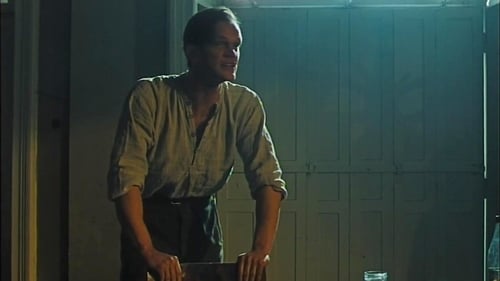
Writer
A Polish Resistance fighter who survived the Nazi years cannot accept the new Communist power.

Director
A Polish Resistance fighter who survived the Nazi years cannot accept the new Communist power.
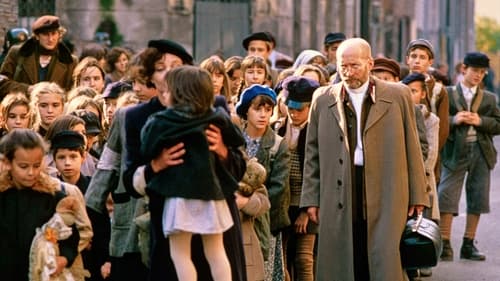
Director
The story of Polish pedagogue Janusz Korczak and his dedication to protecting Jewish orphans during the war.
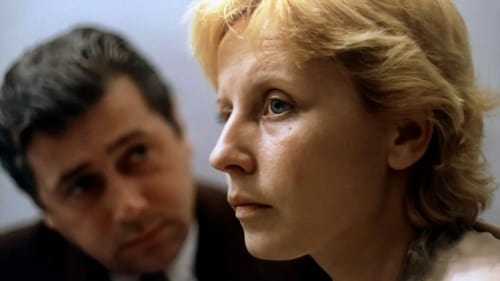
Executive Producer
Durísimo retrato de la opresión política. Krystyna Janda encarna a una actriz de cabaret que mantiene relaciones con altos oficiales militares. Esos encuentros la hacen sospechosa y la policía secreta la encarcela. Mediante una interrogación brutal, se convencen de que el breve encuentro entre la actriz y un comandante del ejército ha fomentado un complot contra el gobierno. A lo largo de la película se muestran a los extremos que llegan los interrogadores para extraer lo que creen que es la verdad... Prohibida inmediatamente tras su estreno en Polonia, la película fue lanzada internacionalmente en 1990 en el Festival de Cannes, donde Janda logró el premio a la mejor actriz. (FILMAFFINITY)

Producer
Durísimo retrato de la opresión política. Krystyna Janda encarna a una actriz de cabaret que mantiene relaciones con altos oficiales militares. Esos encuentros la hacen sospechosa y la policía secreta la encarcela. Mediante una interrogación brutal, se convencen de que el breve encuentro entre la actriz y un comandante del ejército ha fomentado un complot contra el gobierno. A lo largo de la película se muestran a los extremos que llegan los interrogadores para extraer lo que creen que es la verdad... Prohibida inmediatamente tras su estreno en Polonia, la película fue lanzada internacionalmente en 1990 en el Festival de Cannes, donde Janda logró el premio a la mejor actriz. (FILMAFFINITY)

Director
In 1988, Figaro magazine asked a few famous directors to direct a series of short movies to celebrate the 10 years of the revue. The movies have been released for the French revolution bicentenary. Includes: Werner Herzog's Les Gaulois, David Lynch's The Cowboy and the Frenchman, Andrzej Wajda's Proust contre la déchéance, Luigi Comencini's Pèlerinage à Agen, Jean-Luc Godard's Le dernier mot.

Screenplay
Rusia, 1870. Un grupo de jóvenes revolucionarios anarquistas se proponen derribar el régimen zarista por medio de la violencia. Sus atentados crean un clima de psicosis y de desconfianza mutua entre la población; pero, en realidad, tanto revolucionarios como represores están siendo manipulados por un diabólico individuo.

Director
Rusia, 1870. Un grupo de jóvenes revolucionarios anarquistas se proponen derribar el régimen zarista por medio de la violencia. Sus atentados crean un clima de psicosis y de desconfianza mutua entre la población; pero, en realidad, tanto revolucionarios como represores están siendo manipulados por un diabólico individuo.

Writer
Set in the summer months preceding the September 1939 outbreak of World War II in Polish part of Lithuania. A young highschool lad, Witek, is hoping to pass the entrance exams to the university. His love interest is Alina, his high-school colleague.

Director
Set in the summer months preceding the September 1939 outbreak of World War II in Polish part of Lithuania. A young highschool lad, Witek, is hoping to pass the entrance exams to the university. His love interest is Alina, his high-school colleague.

Screenplay
En mayo de 1983, un hombre de 49 años, acompañado de su hijo, viaja al pueblo de su infancia, en Baden. Su deseo es descubrir qué le sucedió en realidad a su madre. Sus recuerdos son muy borrosos y, además, por aquel entonces era demasiado pequeño para comprender lo que ocurría a su alrededor.

Director
En mayo de 1983, un hombre de 49 años, acompañado de su hijo, viaja al pueblo de su infancia, en Baden. Su deseo es descubrir qué le sucedió en realidad a su madre. Sus recuerdos son muy borrosos y, además, por aquel entonces era demasiado pequeño para comprender lo que ocurría a su alrededor.
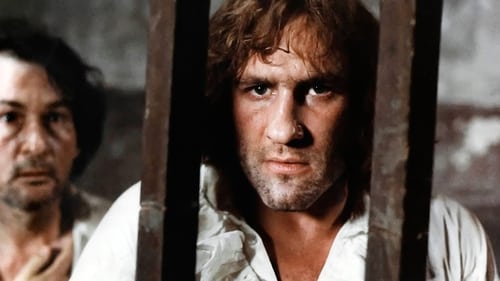
Screenplay
En septiembre de 1793, el Comité de Salud Pública, instigado por Robespierre, instaura el "Terror". El hambre reaparece y con ella la revuelta: las cabezas ruedan. Danton regresa a París para oponerse a Robespierre: es el choque entre dos políticos irreconciliables, entre dos fuertes personalidades. La película narra los últimos días de Georges-Jacques Danton: su proceso y su ejecución en la guillotina, junto a sus amigos, por orden del autoritario y dogmático Robespierre.

Director
En septiembre de 1793, el Comité de Salud Pública, instigado por Robespierre, instaura el "Terror". El hambre reaparece y con ella la revuelta: las cabezas ruedan. Danton regresa a París para oponerse a Robespierre: es el choque entre dos políticos irreconciliables, entre dos fuertes personalidades. La película narra los últimos días de Georges-Jacques Danton: su proceso y su ejecución en la guillotina, junto a sus amigos, por orden del autoritario y dogmático Robespierre.
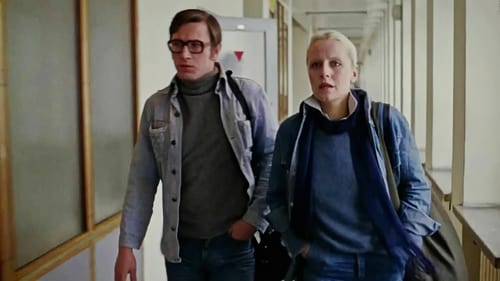
Director
Narra las jornadas revolucionarias en los astilleros navales de Gdansk (o Danzig) protagonizadas por los obreros del sindicato Solidaridad, en el verano de 1980. Ese mismo año, un periodista radiofónico, más amigo del régimen comunista que de la verdad, debe cumplir una misión de difamación contra un destacado militante del sindicato Solidaridad, que resulta ser el hijo del héroe de "El hombre de mármol" (1977).
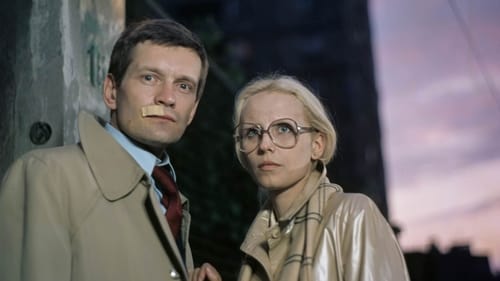
Director
Después de cincuenta años de exilio, un viejo y célebre director de orquesta decide regresar a su patria. Durante los ensayos tiene un enfrentamiento con el director local, hombre ambicioso y marido posesivo de una violinista, hija de la mujer de la que el exiliado estuvo enamorado en su juventud. El film presenta el enfrentamiento entre dos éticas, la del anciano enamorado del arte, y la del inescrupuloso advenedizo, capaz de utilizar cualquier medio para lograr sus fines. Entre ambos, la mujer que, inevitablemente reconoce la realidad, y actúa como desencadenante del conflicto.
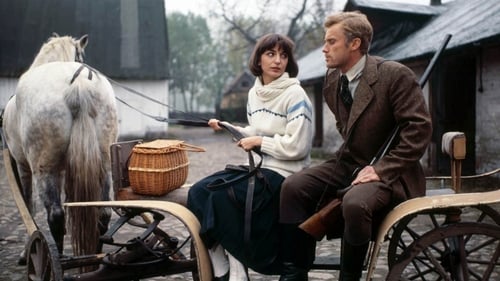
Director
Set in the late '20s. A thirtyish young man, who heads a small factory, faints at the funeral of a close friend. He decides to go home to his aunt and uncle for a while, but gets involved with a family of five women who had been in love with him at one time though he had apparently loved only one, who, unknown to him, has died since his departure. The women are mainly disillusioned with life or estranged from husbands while the youngest has a crush on him.

Director

Screenplay
A famous Polish journalist presents a problem for the powers-that-be when he displays his full political skill and knowledge on a television show featuring questions and answers on a world conference by a panel of journalists. His enemies take away his privileges when he is away. The shock of being "unwanted" parallels a deeper disappointment in his private life: his wife has an affair with a jealous young rival, and after 15 years of marriage and two daughters wants a divorce. She offers no explanations as he tries to untie these problems himself. All the moves he makes are the wrong ones. He takes on drinking heavily with students eager to attend his seminar after discovering the class has been canceled. The journalist, once suave and commanding is reduced to silence.

Director
A famous Polish journalist presents a problem for the powers-that-be when he displays his full political skill and knowledge on a television show featuring questions and answers on a world conference by a panel of journalists. His enemies take away his privileges when he is away. The shock of being "unwanted" parallels a deeper disappointment in his private life: his wife has an affair with a jealous young rival, and after 15 years of marriage and two daughters wants a divorce. She offers no explanations as he tries to untie these problems himself. All the moves he makes are the wrong ones. He takes on drinking heavily with students eager to attend his seminar after discovering the class has been canceled. The journalist, once suave and commanding is reduced to silence.
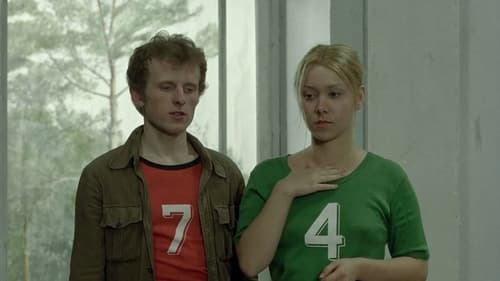
występuje w roli samego siebie
Three-part film centered around a film being made by a group of young directors. In the first a working-class girl finishes school and has her first love affair, which ends badly. In the second a provincial boy with dreams of life in the theater has an affair with his boss' wife. They meet during the film's screen tests.
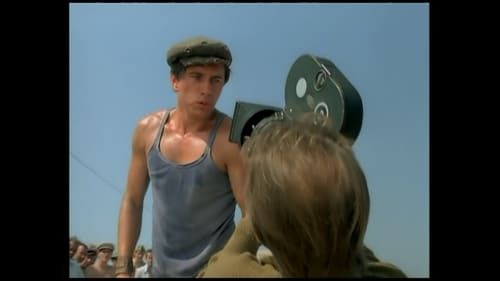
Producer
En 1976, una joven de Cracovia que está realizando su diplomatura en cine, investiga la vida de un obrero, llamado Birkut, quien en los 50 fue, de manera fugaz, un héroe proletario. Su objetivo es investigar como se originó esa leyenda y que efectos provocó en él.

Director
En 1976, una joven de Cracovia que está realizando su diplomatura en cine, investiga la vida de un obrero, llamado Birkut, quien en los 50 fue, de manera fugaz, un héroe proletario. Su objetivo es investigar como se originó esa leyenda y que efectos provocó en él.
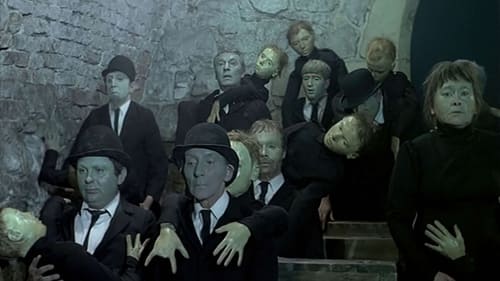
Writer
The Dead Class (1975), by Tadeusz Kantor and the Cricot 2 company, is considered one of the most innovative and influential works of twentieth-century theatre. The breakthrough first version of the production - performed to great critical acclaim, but only rarely seen live by audiences outside Poland - was documented on film in 1976 by the Oscar-winning director Andrzej Wajda.

Director
The Dead Class (1975), by Tadeusz Kantor and the Cricot 2 company, is considered one of the most innovative and influential works of twentieth-century theatre. The breakthrough first version of the production - performed to great critical acclaim, but only rarely seen live by audiences outside Poland - was documented on film in 1976 by the Oscar-winning director Andrzej Wajda.
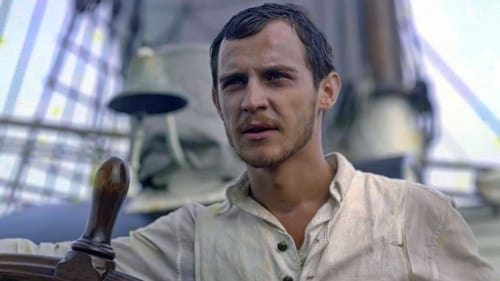
Writer
Andrzej Wajda's English-language film of a novella by Józef Teodor Konrad Korzeniowski, aka Joseph Conrad, about a young man in his first command as a sea captain. A series of crises prove incredibly difficult for his new authority, for the sea is curiously becalmed and the crew is weakened by feverish malaria. When the first mate's fear convinces many that the ship is haunted and cursed by the malevolent spirit of the previous captain, the young man must cope with their superstition as well as the conspicuous absence of much-needed medicine.

Director
Andrzej Wajda's English-language film of a novella by Józef Teodor Konrad Korzeniowski, aka Joseph Conrad, about a young man in his first command as a sea captain. A series of crises prove incredibly difficult for his new authority, for the sea is curiously becalmed and the crew is weakened by feverish malaria. When the first mate's fear convinces many that the ship is haunted and cursed by the malevolent spirit of the previous captain, the young man must cope with their superstition as well as the conspicuous absence of much-needed medicine.
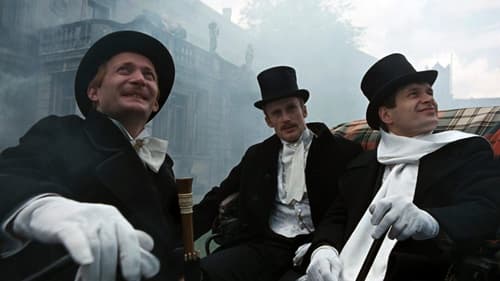
Screenplay
A finales del siglo XIX, la ciudad de Lodz se ha convertido en el epicentro de la industria textil, con la consiguiente necesidad de mano de obra inmigrante. Tres jóvenes estudiantes de Riga: un polaco católico, hijo de nobles terratenientes, un ambicioso judío y un alemán luterano deciden abrir una fábrica en esa ciudad para hacer fortuna y, sin escrúpulos ni prejuicios, se lanzan a acumular dinero y poder. (FILMAFFINITY)

Director
A finales del siglo XIX, la ciudad de Lodz se ha convertido en el epicentro de la industria textil, con la consiguiente necesidad de mano de obra inmigrante. Tres jóvenes estudiantes de Riga: un polaco católico, hijo de nobles terratenientes, un ambicioso judío y un alemán luterano deciden abrir una fábrica en esa ciudad para hacer fortuna y, sin escrúpulos ni prejuicios, se lanzan a acumular dinero y poder. (FILMAFFINITY)
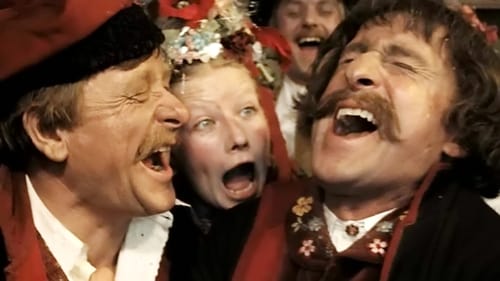
Director
Set at the turn of the century, the story concerns a Polish poet living in Cracow who has decided to marry a peasant girl. The wedding is attended by a heterogenous group of people from all strata of Polish society, who dance, get drunk and lament Poland's 100-year-long division under Russia, Prussia, and Austria. The bridegroom, a painter friend, and a journalist each in turn is confronted with spectres of Polish past. In the end a call to arms is called but turns out to be a hoax.
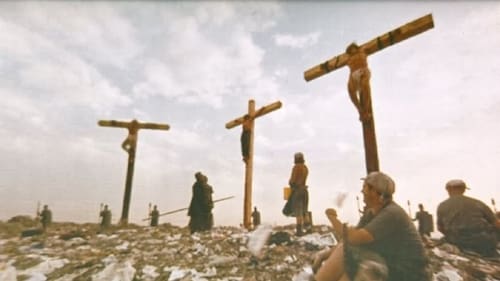
reporter (nie występuje w napisach)
The trial of Yeshua Ha-Notsri is led by prosecutor Pontius Pilate who believes in the innocence of the accused but is forced to sentence him to death. This biblical story is set in present-day Germany.

Director
The trial of Yeshua Ha-Notsri is led by prosecutor Pontius Pilate who believes in the innocence of the accused but is forced to sentence him to death. This biblical story is set in present-day Germany.

Writer
Based on a novella by Ivan Turgenev, Pierwsza milosc is the story of a 15 year old boy and a 21 year old girl who develop an ill-fated romance.

Writer
Drama familiar ambientado durante la posguerra. Un joven músico retorna del extranjero para pasar unos días junto a su hermano en su Polonia natal.

Director
Drama familiar ambientado durante la posguerra. Un joven músico retorna del extranjero para pasar unos días junto a su hermano en su Polonia natal.
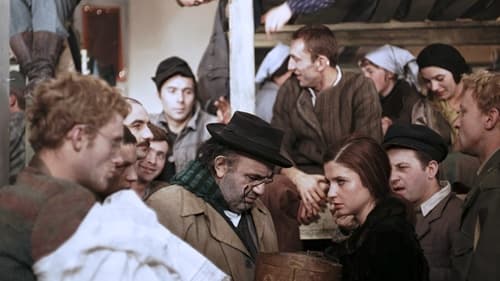
Writer
La Segunda Guerra Mundial ha terminado, pero los supervivientes de un campo nazi descubren que, en esencia, nada ha cambiado: el totalitarismo nazi ha sido simplemente sustituido por otro totalitarismo de distinto signo.

Director
La Segunda Guerra Mundial ha terminado, pero los supervivientes de un campo nazi descubren que, en esencia, nada ha cambiado: el totalitarismo nazi ha sido simplemente sustituido por otro totalitarismo de distinto signo.

Director
Wlodek is a young man stuck in a dead-end job at the local library who lives with his harridan wife and critical in-laws in a small apartment. When Wlodek draws the interest of a library patron, the beautiful young woman encourages him to strive for better things in his life and professional career. Together, the two take off for a three-day affair, but surprises could await Wlodek upon his return home.
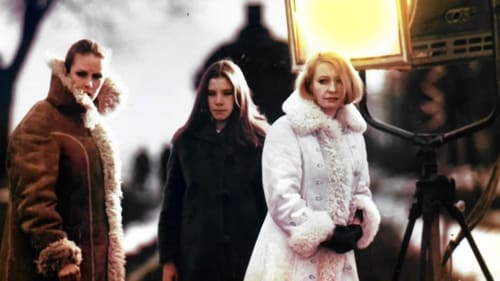
Writer
Wajda's homage to Zbigniew Cybulski, the "Polish James Dean" who starred in the director's ASHES AND DIAMONDS and died young. The movie follows the tribulations of a director attempting to make a movie with a Cybulski-like star who never shows up.

Director
Wajda's homage to Zbigniew Cybulski, the "Polish James Dean" who starred in the director's ASHES AND DIAMONDS and died young. The movie follows the tribulations of a director attempting to make a movie with a Cybulski-like star who never shows up.
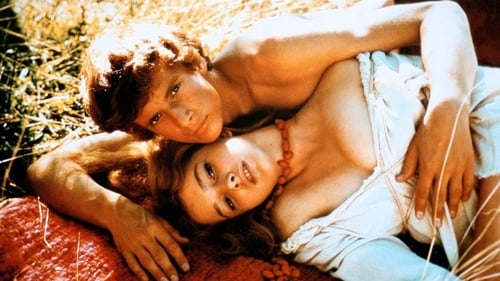
Director
In 1212, a Children's Crusade is launched after a young shepherd, Jacques de Cloyes, claims to have had a vision in which it is said that the innocence of children would be able to liberate Jerusalem. A monk, returning from Holy Land, joins the crusade and hears the children's confessions, gradually realizing that most of them are taking part not for religious, but for more worldly reasons, like rejected love and hopes for freedom.
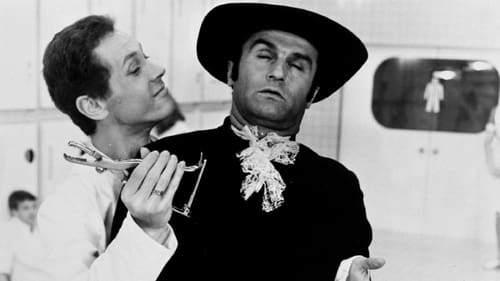
Director
Based on the novel by Stanislaw Lem (Solaris). The main character, race car driver Ryszard Fox, is involved in many car accidents. After each car crash he gets a transplant for one or another internal organ. After a while there is a question: Who really is Ryszard Fox?
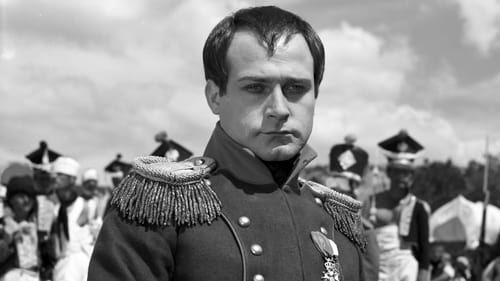
Director
Trata sobre una legión polaca que lucha bajo la bandera de Napoleón, con la esperanza de asegurar la libertad de su país dividido.
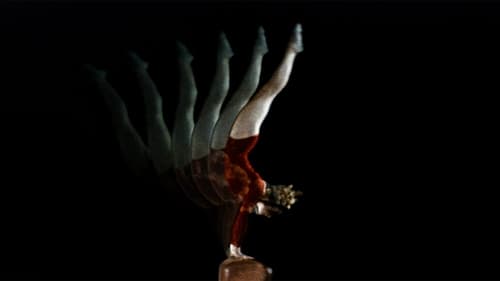
Thanks
Aclamado documental dedicado a los Juegos Olímpicos que Japón hospedó en 1964. (FILMAFFINITY)
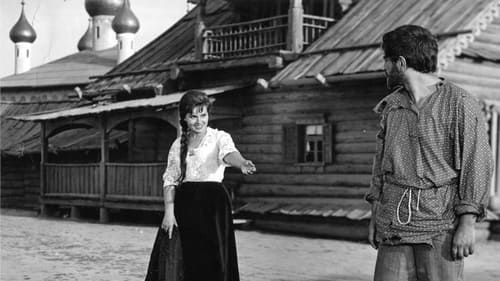
Director
A ruthless woman's adulterous affair with a drifter sets in motion a chain-reaction of murder and deception in a remote village in 19th Century Mtsensk.

Director
A segment of “Love at Twenty” tells the story of a man who rescued a child from a polar bear attack.
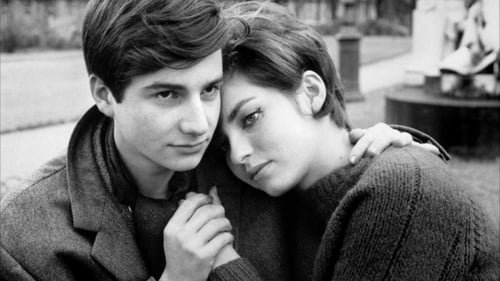
Director
Cinco episodios sobre el amor, dirigidos por conocidos directores. François Truffaut, en "Antoine et Colette", trata de un inocente amor entre un joven y una mujer madura. Renzo Rossellini sigue las andanzas de dos mujeres que comparten un amante. Shintaro Ishihara ofrece un violento retrato de un joven perturbado que se convierte en asesino de mujeres. El episodio de Marcel Ophüls (hijo del gran Max Ophüls) se centra en un periodista que, tras un breve encuentro, deja a una mujer embarazada y tendrá que afrontar su responsabilidade como padre. El episodio dirigido por el polaco Andrzej Wajda habla de un joven soldado cuyas hazañas provocan la admiración de una mujer.

Writer
Sampson is one of several Andrzej Wajda films harking back to his youth during the Nazi Occupation of Poland. Many of these concern not only the struggle between good and evil, but also between passive and impassive. The hero is a Jewish youth. He, like his family, has always been silent and undemonstrative in the face of prejudice. Now he stands up for his right to survive, and in so doing represents the fighting spirit that culminated in the 1943 Warsaw Uprising. It was originally titled Samson, but re-spelled as Sampson upon its American release to avoid confusion with a sword-and-sandal epic of the same name.

Director
Sampson is one of several Andrzej Wajda films harking back to his youth during the Nazi Occupation of Poland. Many of these concern not only the struggle between good and evil, but also between passive and impassive. The hero is a Jewish youth. He, like his family, has always been silent and undemonstrative in the face of prejudice. Now he stands up for his right to survive, and in so doing represents the fighting spirit that culminated in the 1943 Warsaw Uprising. It was originally titled Samson, but re-spelled as Sampson upon its American release to avoid confusion with a sword-and-sandal epic of the same name.
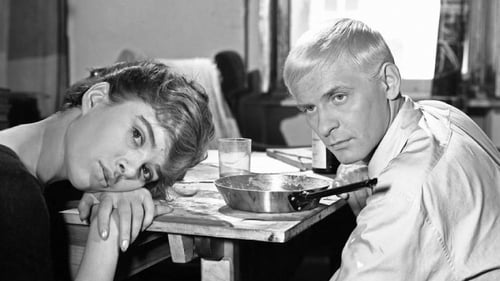
Director
A young doctor is tired of being sought by women. One night he meets a young girl who all but forces herself into his room where they talk of morals and love. But he loses her when he goes out to see some friends and then rushes madly around the city after her.

Writer
Set in the beginning of Wold War II, when the Polish cavalry still fought with lances against German troops. LOTNA is about a white thoroughbred horse that passed through various hands in a military outfit.

Director
Set in the beginning of Wold War II, when the Polish cavalry still fought with lances against German troops. LOTNA is about a white thoroughbred horse that passed through various hands in a military outfit.
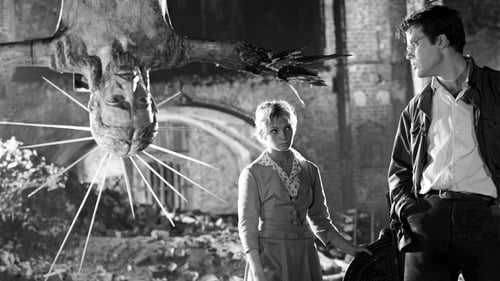
Screenplay
En Polonia, concluida la Segunda Guerra Mundial, la situación política y social es caótica. El idealismo cede el paso a diversas formas de anarquía y extremismo. El protagonista, un joven que milita en un grupo ultranacionalista, recibe el encargo de asesinar a un importante comunista; pero, cuando el joven encuentra el amor, en pocas horas sus certezas comienzan a convertirse en dudas.

Director
En Polonia, concluida la Segunda Guerra Mundial, la situación política y social es caótica. El idealismo cede el paso a diversas formas de anarquía y extremismo. El protagonista, un joven que milita en un grupo ultranacionalista, recibe el encargo de asesinar a un importante comunista; pero, cuando el joven encuentra el amor, en pocas horas sus certezas comienzan a convertirse en dudas.
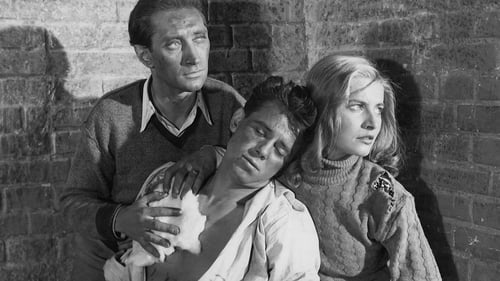
Director
Polonia, septiembre de 1944. Los valientes soldados de un pequeño ejército de la Resistencia se ven forzados a ocultarse en los laberínticos canales de Varsovia tratando de escapar de la ofensiva nazi.
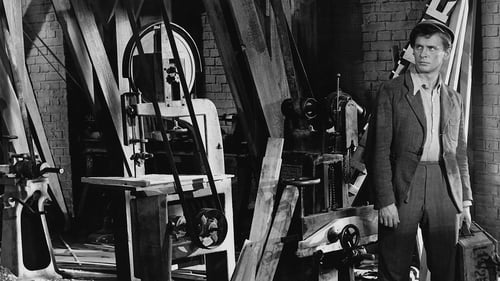
Director
Durante la ocupación nazi de Polonia, toda una generación de jóvenes tuvo que crecer a marchas forzadas a causa de la adversidad. Stach es un adolescente caprichoso que vive en las afueras de la Varsovia ocupada por los nazis. Guiado por pequeños actos de desafío y el fervor comunista, se adentra en el movimiento de resistencia, donde conoce a la valiente y bella Dorota. Pronto se ve implicado en la arriesgada lucha contra la opresión y la búsqueda de dignidad, madurando mientras asume la responsabilidad de las vidas de sus amigos y compañeros...

Writer
A documentary about the sculptor Xawery Dunikowski, shot in his workshop. Director paid a tribute to the artist - a recluse without the artistic inheritors.

Director
A documentary about the sculptor Xawery Dunikowski, shot in his workshop. Director paid a tribute to the artist - a recluse without the artistic inheritors.

Writer

Writer
Documental, realizado por su director cuando aun era estudiante en la escuela de cine de Lodz, sobre la rutina de dos trabajadores de horario nocturno.

Director
Documental, realizado por su director cuando aun era estudiante en la escuela de cine de Lodz, sobre la rutina de dos trabajadores de horario nocturno.

Director
First short film by Wajda, based on the story "A Naughty Boy" by A. Chekhov.

Writer
Andrzej Wajda's first movie looks at the pottery in the town of Iłża, Poland. Much of it shows the actual process of creating all the objects out of clay.

Director
Andrzej Wajda's first movie looks at the pottery in the town of Iłża, Poland. Much of it shows the actual process of creating all the objects out of clay.

Self
Andrzej Munk was one of the leading directors in Polish cinema. Friends and collaborators share their memories about this stunning artist and his premature tragic death.

himself
The main character of "Żyłem siedemnaście razy" reflects on his childhood in Gwoździec and tells a story about the beginning of his career as a filmmaker.

Writer
Sin descripción.

Director
Sin descripción.
